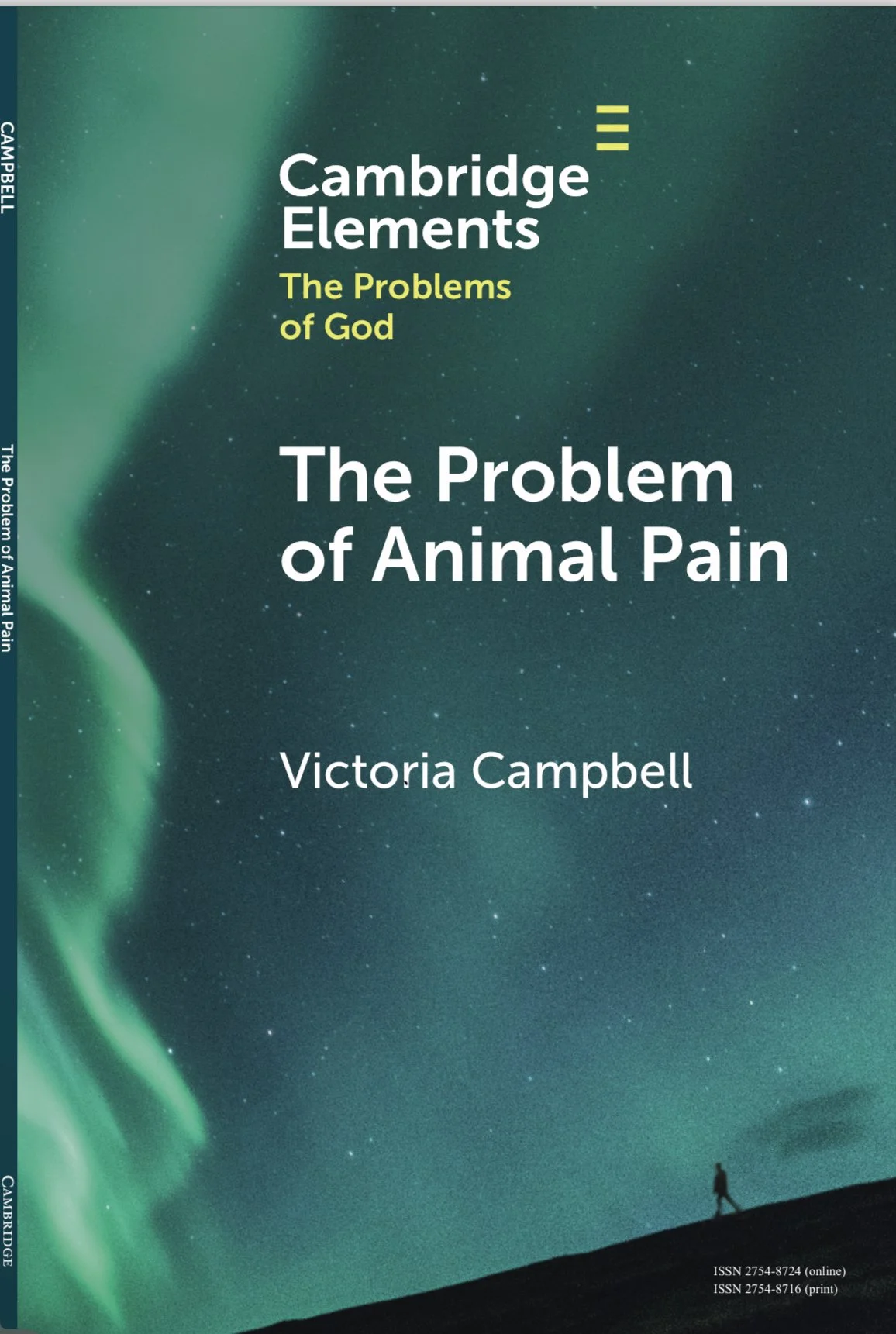
Science & Light
“The heavens declare the glory of God; the skies proclaim the work of his hands.
Day after day they pour forth speech; night after night they reveal knowledge.”
(Psalm 19:1-2)
The purpose of my work is to address misunderstandings in the science-faith conversation that cause unnecessary conflict. My approach is to utilize the best practices in both fields in order to facilitate dialogue and find mutual understanding.
The Problem of Animal Pain
Atheists have cited animal pain as compelling evidence against the existence of the loving God portrayed in the Judeo-Christian Bible. Famous philosophers and scientists like William Rowe, Paul Draper, Richard Dawkins, and others claim widespread unnecessary suffering exists in nature and challenge belief in God with the evidential problem of natural evil. This Cambridge Element engages the scientific literature in order to evaluate the validity of those claims and offers a theodicy of God’s providential care for animals through natural pain-mitigating processes.
I remember the day my son came home from high school and told me that his friends didn’t believe in God — they believed in science. As a PhD Chemist and a Christian believer, I had never viewed these two fields as being in conflict. Yet, I did recognize that most pastors were ill-equipped to answer difficult questions where matters of science and faith overlap. I felt called to do what I could to find answers to questions that so many fair-minded scientists, believers, and seekers are asking. This quest led me to get a PhD in Theology with an emphasis on contemporary Christian Apologetics — particularly the problem of pain.
Why is this important to me?

“In matters that are obscure and far beyond our vision, even in such as we may find treated in Holy Scripture, different interpretations are sometimes possible without prejudice to the faith we have received. In such a case, we should not rush in headlong and so firmly take our stand on one side that, if further progress in the search of truth justly undermines this position, we too fall with it. That would be to battle not for the teaching of Holy Scripture but for our own, wishing its teaching to conform to ours, whereas we ought to wish ours to conform to that of Sacred Scripture.”
— Augustine of Hippo, circa 400 CE —
Author of The Literal Meaning of Genesis


